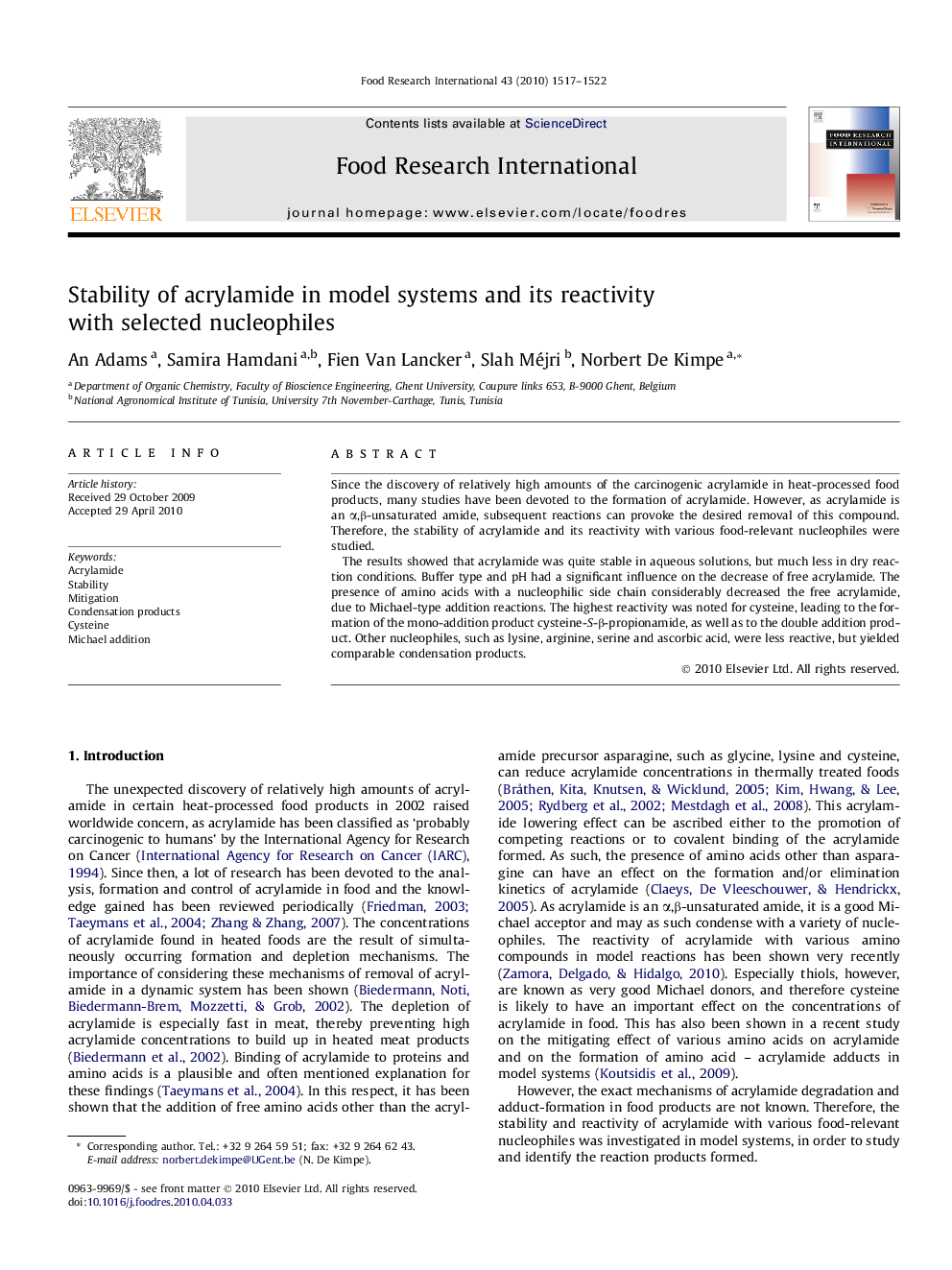| Article ID | Journal | Published Year | Pages | File Type |
|---|---|---|---|---|
| 4562626 | Food Research International | 2010 | 6 Pages |
Since the discovery of relatively high amounts of the carcinogenic acrylamide in heat-processed food products, many studies have been devoted to the formation of acrylamide. However, as acrylamide is an α,β-unsaturated amide, subsequent reactions can provoke the desired removal of this compound. Therefore, the stability of acrylamide and its reactivity with various food-relevant nucleophiles were studied.The results showed that acrylamide was quite stable in aqueous solutions, but much less in dry reaction conditions. Buffer type and pH had a significant influence on the decrease of free acrylamide. The presence of amino acids with a nucleophilic side chain considerably decreased the free acrylamide, due to Michael-type addition reactions. The highest reactivity was noted for cysteine, leading to the formation of the mono-addition product cysteine-S-β-propionamide, as well as to the double addition product. Other nucleophiles, such as lysine, arginine, serine and ascorbic acid, were less reactive, but yielded comparable condensation products.
